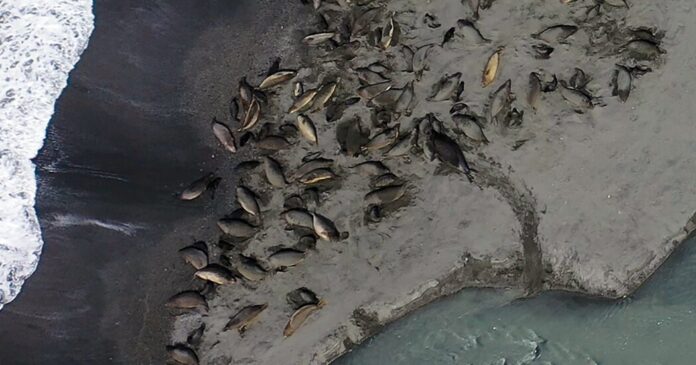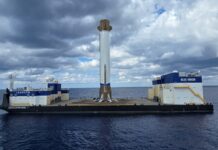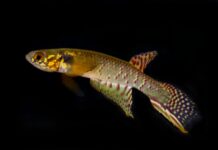A highly pathogenic avian influenza (H5N1) outbreak has caused a catastrophic decline in the world’s largest southern elephant seal population on the remote island of South Georgia. A recent aerial survey reveals a 47% reduction in breeding females across three major colonies, raising serious concerns about the long-term viability of this species. The study, published in Communications Biology, paints a grim picture of a population previously considered stable and resilient.
The Scale of the Die-Off
Researchers estimate that if losses are consistent across all South Georgia colonies, over 50,000 breeding females may have perished. This represents a substantial blow to a species already facing environmental pressures. The rapid and severe nature of the decline is particularly alarming, as elephant seals typically exhibit slow reproductive rates, making recovery difficult.
A New Threat: Mammalian Adaptation of H5N1
The outbreak highlights a disturbing trend: the increasing ability of H5N1 to infect mammals. Historically, avian influenza viruses were primarily confined to birds. However, a recent variant has demonstrated an unusual capacity to jump species, infecting domestic animals like cows and cats, as well as wild mammals including foxes, bears, and raccoons.
This shift is concerning because it suggests the virus is undergoing evolutionary adaptation to mammalian hosts. The exact mechanisms driving this adaptation remain under investigation, but the consequences are clear: previously isolated wildlife populations are now vulnerable to a rapidly spreading, highly lethal pathogen.
Long-Term Implications for Elephant Seals
Connor Bamford, a marine ecologist at the British Antarctic Survey, notes that the population “will almost certainly have shifted its current stable status to one with more of a question mark attached to it.” This means that the future of the South Georgia elephant seal colony is now uncertain.
The virus’s spread could lead to further declines, potentially triggering a cascading effect on the island’s ecosystem. Elephant seals play a critical role in the Antarctic food web, and their loss could disrupt the balance of marine life.
The Broader Risk: Global Mammalian Vulnerability
The outbreak on South Georgia is not an isolated event. The same H5N1 variant has been detected in mammals across multiple continents, raising concerns about a potential pandemic threat to wildlife and livestock. The virus’s ability to spread through direct contact and contaminated environments makes containment challenging.
The situation underscores the need for enhanced surveillance of wildlife populations and the development of effective vaccines to protect both animals and humans. Without proactive measures, the ongoing spread of H5N1 could lead to widespread ecological damage and economic disruption.
The catastrophic losses suffered by the South Georgia elephant seals serve as a stark warning: the world must prepare for a future where avian influenza poses a growing threat to mammalian life







































































